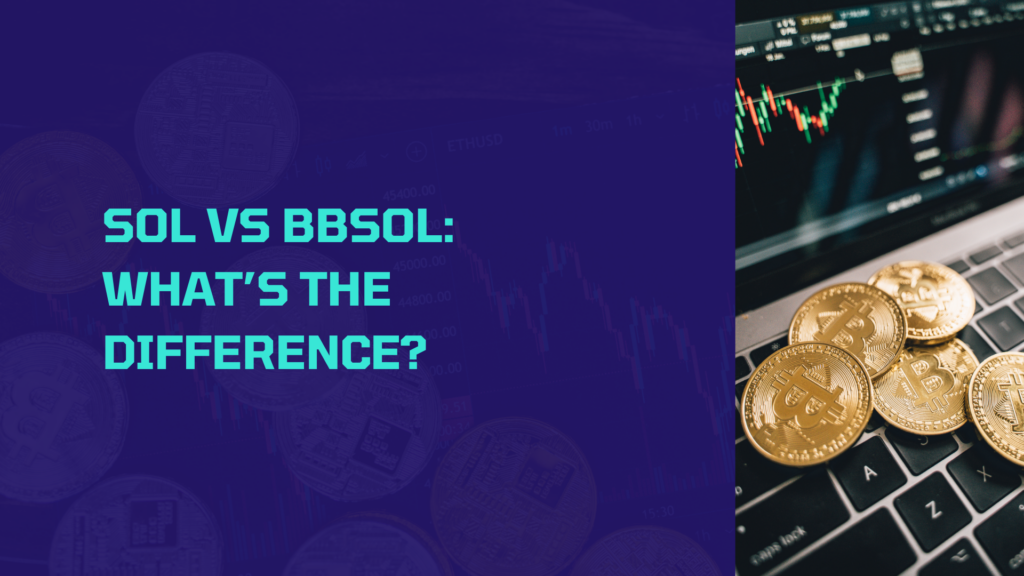SOL vs bbSOL: What’s The Difference?
In the evolving world of cryptocurrencies, Solana (SOL) has emerged as a prominent blockchain platform known for its speed and scalability. Building upon this foundation, Bybit introduced Bybit Staked SOL (bbSOL), a liquid staking token designed to enhance the staking experience on the Solana network. This article delves into the distinctions between SOL and bbSOL, providing a clear understanding of their unique features and benefits.
What is SOL?
SOL is the native cryptocurrency of the Solana blockchain, a high-performance platform supporting decentralized applications (dApps) and crypto-currencies. Solana aims to offer fast transaction speeds and low fees, making it a competitive alternative to other blockchains like Ethereum. Users can utilize SOL for various purposes, including transaction fees, staking to support network security, and participating in governance decisions.
Introducing bbSOL
Bybit Staked SOL (bbSOL) is a liquid staking token introduced by the cryptocurrency exchange Bybit. When users stake their SOL tokens through Bybit’s staking service, they receive bbSOL tokens in return. These tokens represent the staked SOL along with any accumulated rewards, providing users with liquidity while their assets remain staked. This means users can trade or utilize bbSOL tokens in various decentralized finance (DeFi) applications without waiting for the unstaking period to end.
Key Differences Between SOL and bbSOL
- Liquidity: Staking SOL directly on the Solana network typically locks the tokens for a specific period, during which they cannot be transferred or traded. In contrast, bbSOL provides liquidity by allowing users to trade or use their staked assets in DeFi applications, even while they are earning staking rewards.
- Utility: While SOL is used for transaction fees, staking, and governance within the Solana ecosystem, bbSOL extends its utility by enabling participation in various DeFi platforms. This includes providing liquidity on decentralized exchanges, yield farming, and more, thereby maximizing the potential returns for holders.
- Issuer: SOL is the native token of the Solana blockchain, maintained by its decentralized network of validators. bbSOL, however, is issued by Bybit as part of its liquid staking service, making it an exchange-backed token.
- Value Accumulation: The value of SOL is determined by market demand and its utility within the Solana network. bbSOL’s value, on the other hand, reflects the underlying staked SOL plus any accrued staking rewards, which means its value may increase over time relative to SOL, depending on the staking yield.
Benefits of Using bbSOL
- Enhanced Liquidity: Users can maintain liquidity of their assets while still earning staking rewards, allowing for more flexible investment strategies.
- DeFi Integration: bbSOL can be utilized across various DeFi platforms, enabling users to engage in activities like liquidity provision and yield farming, potentially increasing their returns.
- Simplified Staking Process: Bybit’s platform streamlines the staking process, making it more accessible, especially for users who may find direct staking on the Solana network complex.
Considerations and Risks
While bbSOL offers several advantages, it’s essential to be aware of potential risks:
- Counterparty Risk: Since bbSOL is issued by Bybit, users are exposed to the exchange’s operational security and solvency.
- Market Risk: The value of bbSOL can fluctuate based on market conditions, and while it represents staked SOL plus rewards, its market price may vary.
- DeFi Risks: Engaging with DeFi platforms involves risks such as smart contract vulnerabilities and liquidity risks, which could affect the value and usability of bbSOL.
Conclusion
SOL and bbSOL serve different yet complementary roles within the Solana ecosystem. While SOL functions as the native token facilitating transactions and governance, bbSOL enhances the staking experience by providing liquidity and additional utility through DeFi integration. Investors should assess their individual goals and risk tolerance when deciding between holding SOL, staking directly, or utilizing services like bbSOL to maximize their participation in the Solana network.
